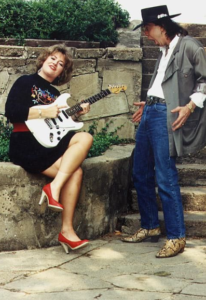In the aftermath of Barcelona’s clash with Espanyol, one player finds himself at the center of both praise and critique: Frenkie de Jong. Was his performance a reflection of deeper issues within the team, or simply a bad day at the office? Let’s dive into the nuances of his role in this intriguing match-up.
To say Barcelona had a mixed bag of a game against Espanyol is like calling Everest a hill — technically true, but it fails to capture the grandeur of the situation. The first half was a masterclass in football, perfectly executing Hansi Flick’s blueprint of high-intensity pressing and offensive flair. The team rocketed to a 3-0 lead, making Espanyol’s defense look like it had been assembled that morning. Players like Dani Olmo and Lamine Yamal were in the kind of form that makes you wonder if they’d been hiding an extra set of legs somewhere.
But then came the second half, and with it, a performance that could only be described as a Shakespearean tragedy if Shakespeare had written about sports. The energy dipped, the coordination waned, and Espanyol caught the scent of opportunity. It was like watching a team that had rehearsed a perfect opera suddenly decide to improvise — the notes were off, and the rhythm was gone.
Enter Frenkie de Jong: the man who could be hero or villain, depending on which side of the fence you sit. His introduction, coupled with Fermin Lopez, seemed to coincide with the unraveling of the night’s impeccable script. The offside trap, which had been Barcelona’s secret sauce, was tested to its limits as Espanyol sought to exploit the newfound cracks.
Frenkie, a man usually as composed as a Zen master on holiday, appeared disinterested on the bench, raising questions of his mental state even before he set foot on the pitch. Was it a lack of motivation or merely a misinterpretation of the moment? The jury’s still out, but what’s undeniable is that his presence failed to inject the necessary vigor back into the team.
The crux of the matter seems to lie in intensity — or the lack thereof. Flick’s system demands relentless energy, something that was palpably absent in the latter half of the match. It’s a lesson in consistency for De Jong and his counterparts, who need to match the zeal of players like Marc Casado, known for fighting tooth and nail for every minute of play.
As Barcelona reflects on this game, the focus will surely turn to how they can channel their first-half brilliance into a sustained 90-minute performance. Frenkie de Jong stands at a crossroads. Will he rise to the challenge and embody the ethos that Barcelona aspires to, or will his contributions remain sporadic, leaving fans and critics alike in a state of perpetual uncertainty?
Ultimately, the Espanyol match serves as both a warning and an opportunity. Barcelona showed they possess the talent to claim glory but must also grapple with the potential for self-sabotage. For Frenkie, it’s a chance to reaffirm his value to a club that demands nothing short of excellence.
Click here to get it while stocks last.
References: Barcelona’s victory against Espanyol is overshadowed by complacent second half – Barca Blaugranes



